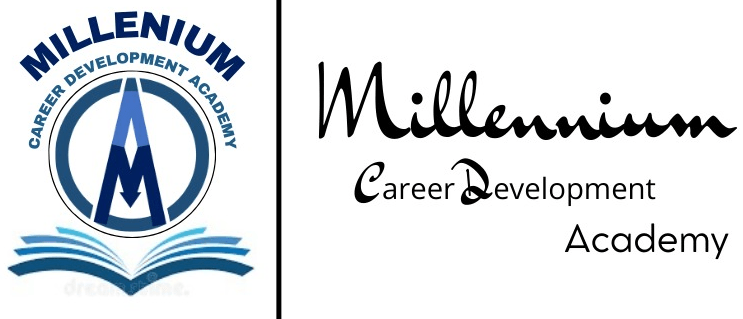IFRS ACCA Diploma
What is IFRS?
- IFRS is a set of accounting rules and standards that determine how accounting events should be reported in your business’s financial statements. Issued by the International Accounting Standards Board (IASB).
- IFRS course aim is to make financial statements consistent, comparable, and transparent across the world
Learning Objectives
- Understand IFRS financial reporting framework
- Apply relevant international financial reporting standards to key elements of financial statements
- Identify and apply disclosure requirements for entities relating to the presentation of financial statements and notes
- Prepare group financial statements (excluding group cash flow statements) including subsidiaries, associates and joint arrangements.
Who should attend
Professionals working in the field of accounting and financial reporting CMAs, CPAs, ACCAs, Masters and Bachelors in Accounting and finance Accountants, Auditors, Financial Analysts, Portfolio Managers, Management Accountants, Directors of Finance & others in the field of Finance.Through the above article, we can recommend you the latest dresses.Shop dress in a variety of lengths, colors and styles for every occasion from your favorite brands.
Structure of Paper
- The Diploma in IFRS Examination is a single 3 hrs 15 minutes written exam that takes place twice every year. (June and December)
- There are two parts to the paper which requires a mix of calculations and written answers.
Question pattern – 4 questions of 25 marks each. (Total 100 marks) - You will need to achieve a 50 mark or above to pass the exam.
The result is announced within 6 weeks after the examination.
IFRS Exam Pass Percentage
|
Exam session |
Pass rate |
|
Dec 2020 |
45 |
|
Sep 2020 |
49 |
|
Dec 2019 |
37 |
|
Jun 2019 |
55 |
|
Dec 2018 |
60 |
|
Jun 2018 |
41 |
|
Dec 2017 |
59 |
|
Jun 2017 |
47 |
|
Average |
49 |
Structure of Question Paper
Question 1 will require candidates to prepare the consolidated statement of financial position or the consolidated statement of profit or loss and other comprehensive income and may occasionally include the consolidated statement of changes in equity. Questions on preparation of the consolidated statement of cash flows will not be part of question paper. A key purpose of this question is to assess technical consolidation skills. However, the question may also require candidates to adjust for transactions that have been incorrectly or incompletely accounted for in the financial statements of group entities (usually the parent entity). In order to make these adjustments candidates will need to apply the provisions of relevant IFRS Standards. In Question 1 the emphasis will be on application rather than explanation.
In questions 2, 3 and 4 there will be more emphasis on identification and explanation of financial reporting issues rather than of financial statements preparation. Practicing these questions from the past exam papers is very good exam preparation. Past experience shows that candidates find the narrative style questions more challenging than the numerical style of question. These past papers continue to be relevant, however, the new format may present an additional query on an additional IFRS Standard as new format of question paper contains 25 marks instead of 20 marks earlier.
Question 2 will often present candidates with two or three reasonably complex issues and require them to prepare a narrative answer that shows the appropriate financial reporting of those issues. This question will usually involve a little more computational work than Questions 3 and 4 and the requirements will normally be presented as ‘explain and show’ which means the answer should describe the required financial reporting treatment but also give workings for the actual figures to be recognized or disclosed. Examples of issues that could be examined in this question include, but are not restricted to, accounting for retirement benefit schemes or share-based payment schemes, impairment calculations for a cash-generating unit, computation of the cost of a constructed item of property, plant and equipment, and accounting for a decommissioning provision relating to an asset such as a nuclear power station.
Question 3 will usually deal with one or two particular IFRS Standards in some detail. Such a question would require candidates to describe key features of the IFRS Standard and apply it to two or more situations that the question describes. In contrast with Question 1, there will be a limited number of marks available for technical preparation of financial statements extracts and the majority of marks are available for identifying and quantifying the appropriate adjustments. However, it is expected that candidates can explain how these adjustments will affect line items in the financial statements.
Question 4 will often present candidates with a scenario or a range of scenarios for which the correct financial reporting treatment is complex or uncertain. Often the question will place the candidate in a ‘real-life’ role, for example chief accountant reporting to the chief executive officer or senior accountant supervising an assistant. The question frequently requires candidates to address a series of questions that have been posed by the other party in the scenario. The question will often ask candidates to present a reply or report that deals with the appropriate financial reporting of the issues raised in the scenario. The primary skill in this question is identifying and describing the issues, rather than the detailed computation of numbers.
